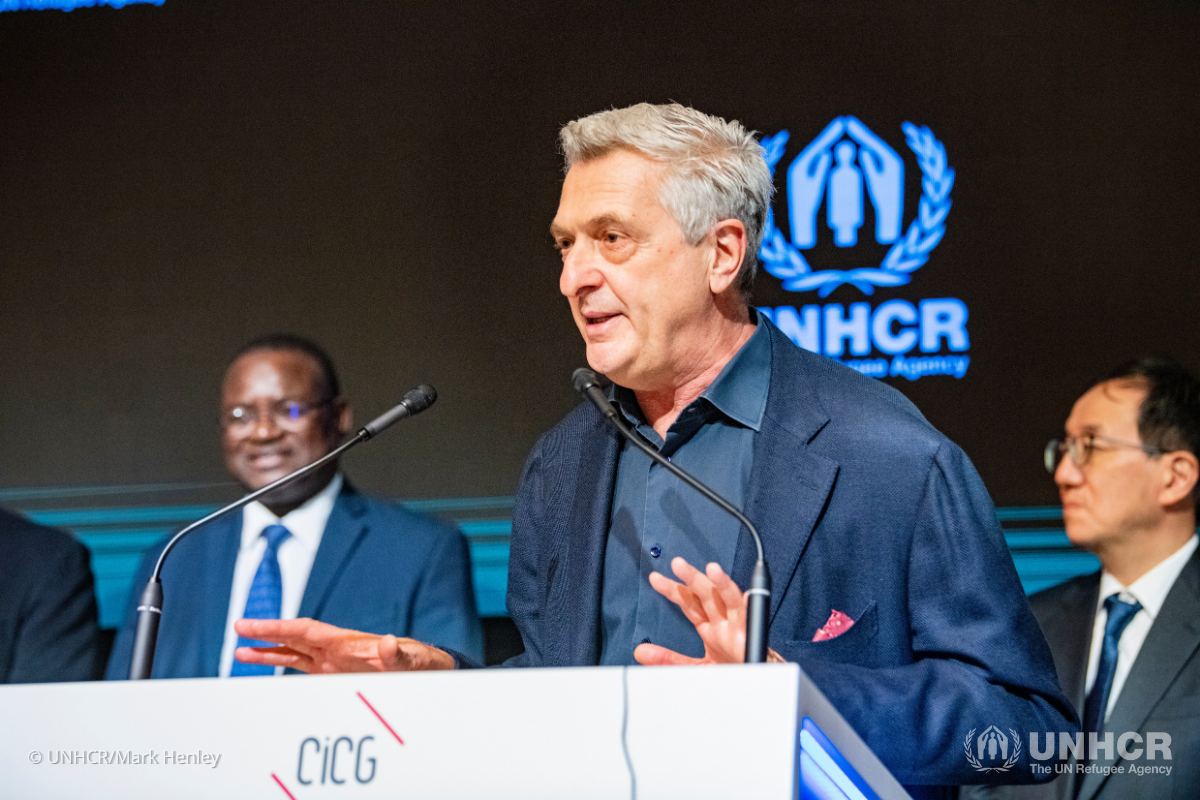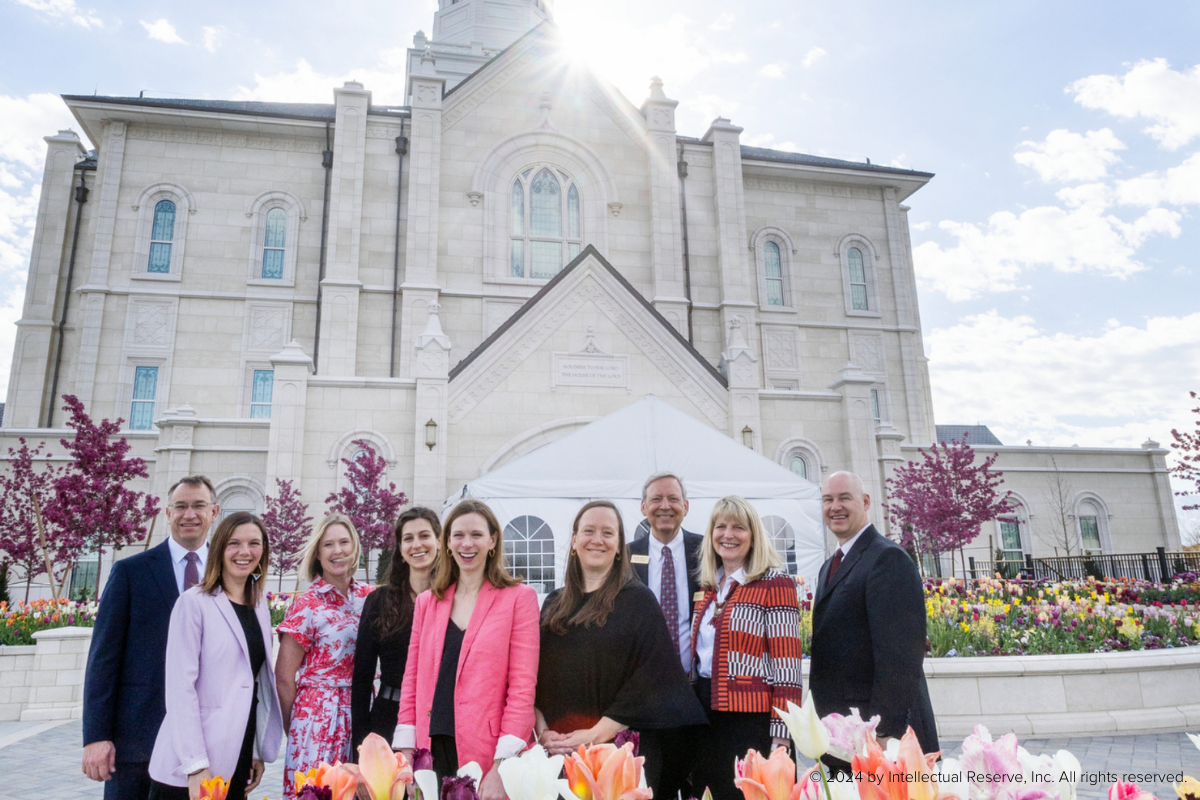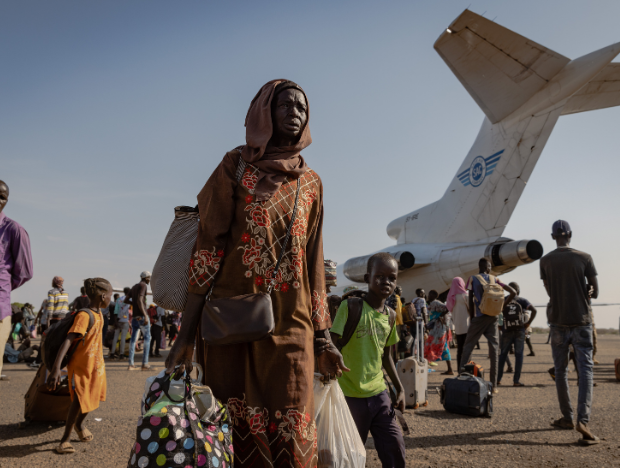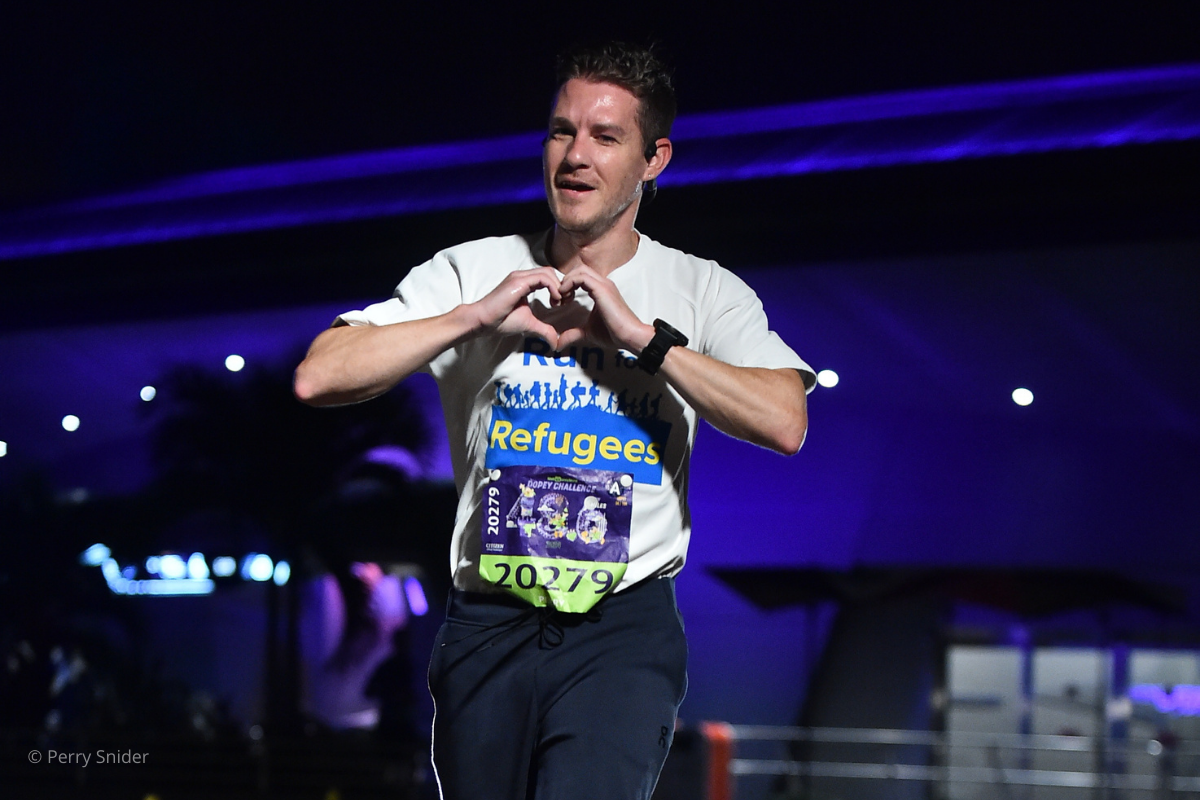What is the Global Refugee Forum?
“Injustice, conflict and violence. This is why we are here. Our world is in turmoil, and 25 million refugees are looking to us for solutions,” said Filippo Grandi, United Nations High Commissioner for Refugees, as he opened the first Global Refugee Forum in 2019.
Four years later, global forced displacement is at an all-time high with the number of refugees increasing to 35.3 million. The number of forcibly displaced and stateless around the world keeps rising each year and has now passed the 110 million mark. At a critical time when war, food scarcity, inflation and the climate crisis are contributing to ongoing and protracted refugee crises, UNHCR, the UN Refugee Agency, United Nations Member States and stakeholders are convening for the second Global Refugee Forum.
The 2023 Global Refugee Forum provides an opportunity for the international community to come together in support of refugees and host communities and to strengthen their commitments and responsibility-sharing. Learn more about what the Global Refugee Forum is and why it’s important.

1. What is the Global Refugee Forum?
The Global Refugee Forum (GRF) is the world’s largest gathering of refugees and is held every four years to support and uphold the implementation of objectives set out in the Global Compact on Refugees. The first Global Refugee Forum was held in December 2019 in Geneva, Switzerland, and brought the international community together to demonstrate solidarity with the world’s refugees and the countries and communities that host them.
This year’s GRF will be held from December 13-15 in Geneva, Switzerland. The 2023 Forum is co-convened by six countries – Colombia, France, Japan, Jordan, Niger and Uganda, and co-hosted by the Government of Switzerland and UNHCR, The UN Refugee Agency.
2. What is the Global Compact on Refugees?
The Global Compact on Refugees (GCR) was established on December 17, 2018, by the United Nations General Assembly after two years of consultations led by UNHCR with Member States, international organizations, refugees, civil society, the private sector and other experts.
The Global Compact on Refugees recognizes that a sustainable solution to the global refugee crisis cannot be achieved without international cooperation from Member States and civil society stakeholders. The GCR provides a framework for equitable burden and responsibility-sharing among governments, international organizations, and other stakeholders to ensure that host communities receive the support they need in order for refugees to thrive in their new homes.
The four key objectives of the Global Compact on Refugees are to:
- Ease the pressures on host countries
- Enhance refugee self-reliance
- Expand access to resettlement and complementary pathways
- Support conditions in countries of origin for return in safety and dignity
As a key component of the GCR, the Global Refugee Forum was established in order to ensure sustained momentum and political will by the international community for the GCR and to announce concrete pledges and contributions towards its four key objectives.
3. What are the goals of the Global Refugee Forum?
The goal of the Global Refugee Forum is to bring together Member States and stakeholders to facilitate the announcement of concrete pledges and contributions, take stock of progress, and consider learnings and opportunities, challenges and ways in which the international community can manage burden and responsibility-sharing in support of the four objectives of the GCR.
Pledges are commitments—from financial, technical, and material support to policy advancements—made by stakeholders including governments, organizations or private donors to support and address challenges faced by refugees. The pledging process establishes concrete commitments made by stakeholders to fulfill the objectives of the GCR.
Since the first Global Refugee Forum in 2019, over 1,700 pledges and initiatives have been collected. The first GRF was dedicated to receiving formal pledges and contributions, while the upcoming 2023 Forum, along with subsequent forums, provides an opportunity for stakeholders to make new pledges while also taking stock of the implementation of previous pledges since 2019.
Stocktaking involves assessing and evaluating the progress made towards the objectives of the Global Compact on Refugees. During this process, stakeholders identify gaps, challenges and areas where further action is needed to address the refugee crisis effectively.
The GRF also gives stakeholders the opportunity to share learnings and best practices with each other to identify effective strategies, innovative solutions and successful programs that can be replicated and scaled up to further support refugees and host communities.
4. Who attends the Global Refugee Forum?
Every four years, the Global Refugee Forum brings together United Nation Member States, refugees and host communities, the private sector, civil society organizations, faith-based organizations, international organizations, cities, municipalities and local authorities, academia and researchers, parliaments, sports organizations and other stakeholders who have a role to play in supporting refugees.
In 2019, the first Global Refugee Forum was attended by 3,000 participants, including four Heads of State or Government, more than 90 officials at the Ministerial level, the Secretary-General of the United Nations, approximately 55 international organizations, representatives of more than 130 companies and foundations, approximately 250 civil society organizations and 70 refugees.
Although the GRF is an in-person invitation-only event, interested parties are encouraged to watch the plenary sessions which will be livestreamed for those who wish to follow the event online.
5. How does UNHCR lead on the Global Refugee Forum?
Every four years, UNHCR co-hosts the Global Refugee Forum alongside other United Nations Member States. UNHCR supports States and multi-stakeholders in making and matching pledges, stocktaking and identifying good practices to share at subsequent forums.
In the lead-up to the 2023 Global Refugee Forum, UNHCR has identified two key priorities: (1) progressing on the implementation of pledges announced since 2019 and (2) developing new pledges. UNHCR regularly holds global briefings to update all stakeholders on these priorities and provide support and guidance in fulfilling their pledges.
UNHCR released the first GCR Indicator Report in 2021 and convened a High-Level Officials Meeting to take stock of progress towards the GCR objectives at the mid-point between Forums.
UNHCR reviews submissions of best practices shared by stakeholders and publishes these recommendations on the GCR Digital Platform. Best practices may also be shared during briefings on the GCR and GRF preparations, through UNHCR communications channels and at the GRF.
In his closing remarks at the first Global Refugee Forum in 2019, Filippo Grandi, United Nations High Commissioner for Refugees said, “The central theme of the Forum was burden and responsibility-sharing. These have been very imperfect since the establishment of the Refugee Convention in 1951. All the instruments talk about it, but the reality is that there has been no real systematic burden and responsibility-sharing. That sharing, as the Secretary-General pointed out yesterday, can only be real if we all take on responsibilities.”
Interested in the Global Refugee Forum?
Follow USA for UNHCR on Twitter, Instagram and Linkedin to stay up to date on new information and content about the upcoming Global Refugee Forum.


